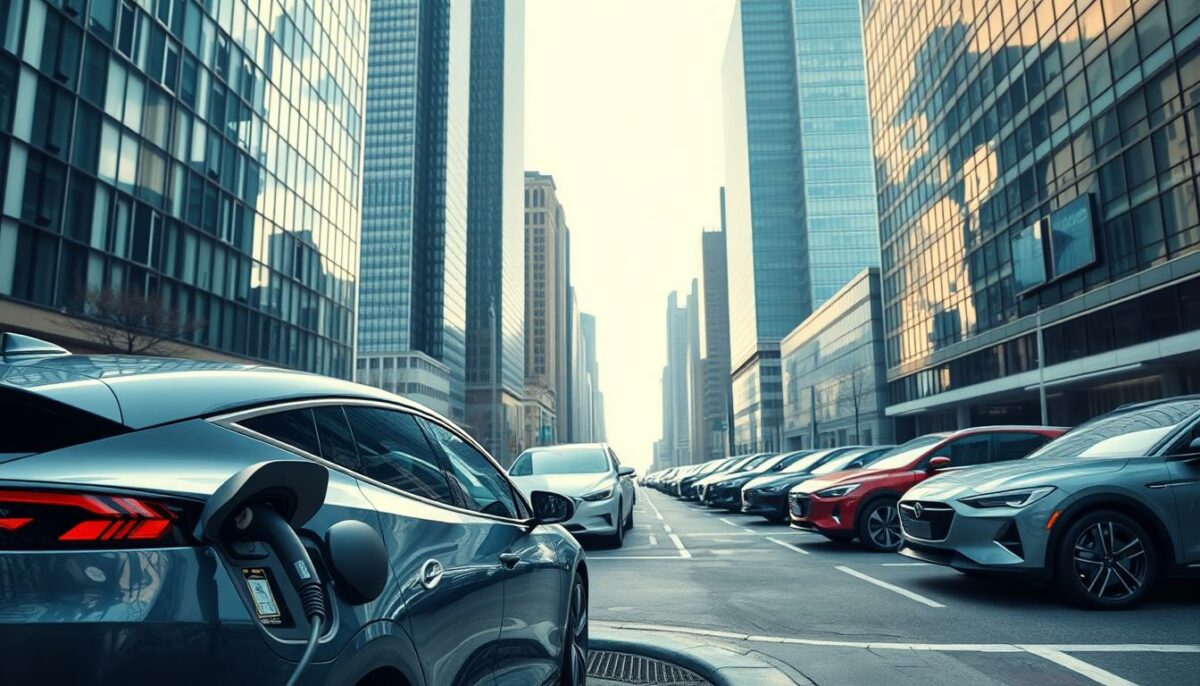We’re excited to explore the rapid growth of electric vehicles, driven by innovative Tesla software that’s transforming the automotive industry. As we delve into the world of electric vehicles, it’s clear that Tesla’s pioneering approach to automotive innovation has set a new standard for the sector. With electric vehicles becoming increasingly popular, the role of Tesla software in enhancing the overall driving experience cannot be overstated.
At the heart of this transformation are over-the-air updates, a game-changer in the electric vehicle market. These updates enable Tesla to continuously improve its vehicles’ performance, safety, and features without the need for physical visits to service centers, making electric vehicles more appealing to a wider audience. This is a key aspect of automotive innovation, and we’re eager to see how it will continue to shape the future of electric vehicles.
As we look at the impact of Tesla software on the electric vehicle market, it’s evident that the company’s commitment to automotive innovation has raised the bar for the entire industry. With the electric vehicle market continuing to grow, we’re seeing a significant shift towards more sustainable and technologically advanced transportation solutions, driven in part by the success of Tesla’s software updates and the resulting improvements in electric vehicles.
Tesla’s Software Revolution in the Automotive Industry
We are witnessing a significant shift in the automotive industry, driven by Tesla’s software revolution. At the forefront of this revolution is the introduction of over-the-air updates, which has transformed the way vehicles are maintained and improved. This technology enables vehicles to receive updates remotely, ensuring they stay up-to-date with the latest features and security patches.
As we delve into the world of sustainable mobility, it becomes clear that Tesla’s autopilot technology is setting a new standard for driver assistance systems. By leveraging advanced sensors and machine learning algorithms, autopilot technology enhances vehicle safety and convenience. Furthermore, Tesla’s innovative approach to EV battery management has optimized energy efficiency, allowing for longer driving ranges and reduced charging times.
- Enhanced vehicle safety through advanced driver assistance systems
- Improved energy efficiency through optimized EV battery management
- Increased convenience through over-the-air updates and remote vehicle management
As the automotive industry continues to evolve, it is clear that Tesla’s software revolution is driving the shift towards sustainable mobility. With its innovative approach to autopilot technology, EV battery management, and over-the-air updates, Tesla is redefining the future of transportation.
The Evolution of Electric Car Software: From Tesla to Rivals
We’re witnessing a significant shift in the automotive industry, driven by electric vehicles and automotive innovation. As technology advances, sustainable mobility is becoming increasingly important. The software components in modern electric vehicles (EVs) are crucial for their performance, efficiency, and overall user experience.
Key software components in modern EVs include advanced battery management systems, which optimize range and efficiency. The integration of mobile apps with vehicle control is also becoming more prevalent, enhancing the EV ownership experience. This integration allows users to monitor their vehicle’s status, control charging, and even adjust settings remotely.
Key Software Components in Modern EVs
- Battery management systems
- Vehicle control and monitoring
- Mobile app integration
As the industry continues to evolve, we can expect to see even more sophisticated software solutions that improve performance, range, and user experience. The future of electric vehicles is exciting, with many manufacturers investing in automotive innovation and sustainable mobility. With the rise of electric vehicles, the demand for advanced software solutions will continue to grow, driving innovation and growth in the industry.

Battery Management Systems Evolution
| Year | Battery Type | Range |
|---|---|---|
| 2020 | Lithium-ion | 250 miles |
| 2022 | Solid-state | 350 miles |
| 2025 | Advanced Lithium-ion | 400 miles |
How Traditional Automakers Are Catching Up
We’re seeing a significant shift in the automotive industry as traditional automakers invest heavily in electric vehicles and automotive innovation. Companies like General Motors and Ford are developing their own advanced driver-assistance systems, similar to Tesla’s Autopilot feature, which has set the standard for the industry. These efforts are driven by the need to catch up with Tesla’s software-driven approach, which has revolutionized the way cars are designed, manufactured, and updated.
One key area of focus for traditional automakers is the development of their own electric vehicle technology. This includes investing in battery management systems, electric motors, and other components that are critical to the performance and efficiency of electric vehicles. By doing so, they’re able to offer competitive products that can rival Tesla’s lineup of electric vehicles. Additionally, partnerships with tech companies are becoming increasingly common, as automakers seek to leverage the expertise of these companies to enhance their own automotive innovation and Tesla software capabilities.
- General Motors’ investment in its Ultium battery platform, which will power a range of upcoming electric vehicles
- Ford’s partnership with Volkswagen to develop new electric vehicle technologies
- BMW’s development of its own autonomous driving system, which will be integrated into its future electric vehicles
These efforts demonstrate the commitment of traditional automakers to electric vehicles and automotive innovation, and their determination to stay competitive in a rapidly changing industry.
The Road Ahead: Shaping Tomorrow’s Electric Mobility
As we look to the future, the electric mobility landscape is poised for remarkable advancements. Innovations in artificial intelligence, 5G connectivity, and battery technology will revolutionize how we power and interact with our vehicles. We envision a future where electric cars become not just a mode of transportation, but a central component of a sustainable, connected mobility ecosystem that transforms the way we live and travel.
Autonomous driving capabilities, enabled by AI and 5G, will redefine the driving experience, allowing us to reimagine how we utilize our time on the road. Seamless integration with smart city infrastructure and the Internet of Things will create a holistic, efficient transportation network that reduces emissions and congestion, ultimately contributing to a more sustainable and livable urban environment.
Furthermore, breakthroughs in battery technology, such as longer ranges, faster charging, and improved energy density, will make electric vehicles more accessible and practical for a wider range of consumers. As the costs of electric cars continue to decline, we anticipate a surge in mass adoption, catalyzing the transition to a more sustainable mobility future.
The automotive innovation we’ve witnessed in the electric vehicle space is just the beginning. With the convergence of cutting-edge electric vehicles technologies, we are poised to reimagine the very nature of personal transportation and its role in shaping a more sustainable, connected, and vibrant future for all.

